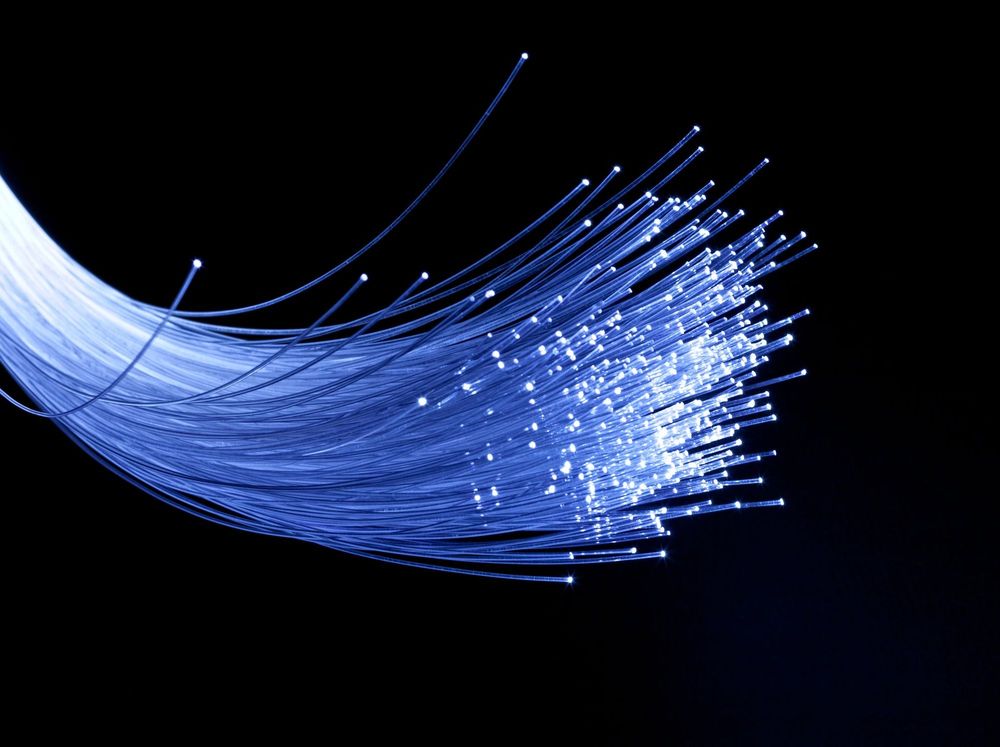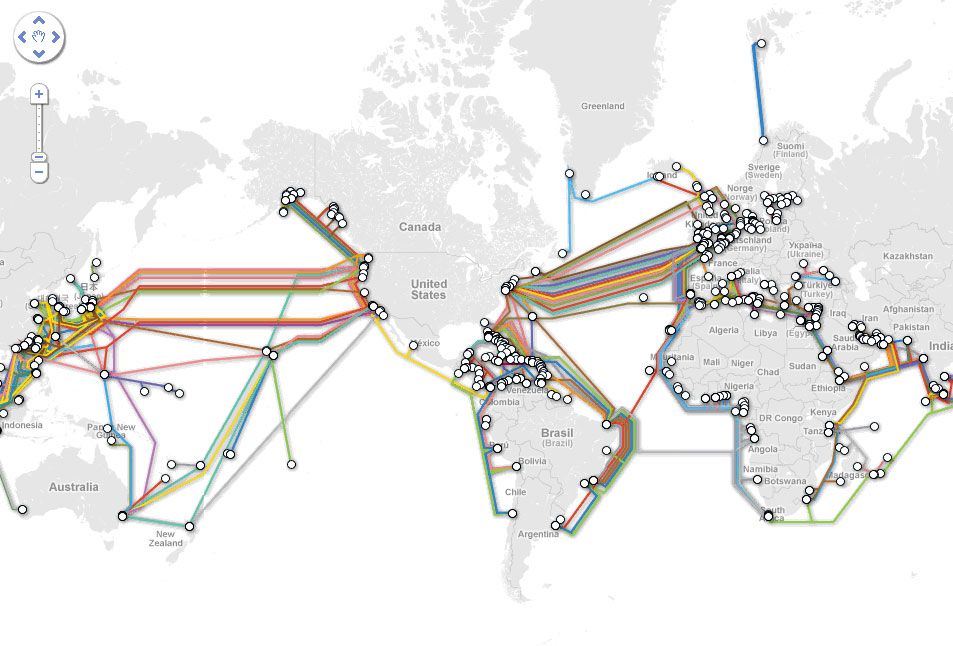The thing we're trying to escape is the thing we need to help us escape

Long before he was famous for sexual misconduct, Louis CK was famous, at least in some circles, for having given voice to one of the funnier commentaries on technology and the economy: “Everything’s amazing and nobody’s happy”.
You get the overall point: the minute a certain technology is commonplace - be it aviation or plumbing or refrigeration - we very quickly take it all for granted. Instead of pondering and wondering how the modern world works, many people are quite happy to wallow in ignorance or incuriosity about the cogs and wheels whirring beneath the surface.
Except that it turns out that goes for Louis CK too. For at one point in the monologue he bewails those who complain when their smartphone won’t quickly load a webpage.
“Give it a second,” he cries. “It’s going to space! Can you give it a second to get back from space…?”
But it so happens he’s wrong on this, because the vast, vast majority of distance travelled by data to and from your phone is in fact not over the air, let alone into space. Sure, it's tempting to believe, given that we mostly access it via wireless networks these days, that the World Wide Web is an ethereal thing which inhabits and travels thin air, in reality it is a physical infrastructure. The internet is a web of fibre optic cables connecting servers - themselves made out of copper, silicon and all sorts of other elements. It has hubs and nodes that consist of very physical buildings, which you could even visit, or attempt to, as Andrew Blum did in a book a few years ago.

In practice, unless you are among the tiny fraction of people using satellite internet, only the very final few hundreds of metres of that data journey are wireless. The rest happens in large part thanks to stuff we have pulled out the ground and processed into extraordinary physical products like semiconductors or copper electrodes or fibre optics.
I mention all of this because (as you have probably gathered by now) I am in the middle of writing a book about, well, this very subject: the physical underpinnings of the world we live in. And in a sense it began with a personal epiphany much like Louis CK's.
At every turn in my research I have encountered anecdotes and discoveries showing just how extraordinary the world we live in is. The processes we have devised to produce the stuff we use are often so amazing they beggar belief, yet many of us (especially in the world of economics) spend too little time contemplating how it works. Fibre optics, it turns out, are a thing of wonder yet rarely do we contemplate how they work or where they are routed, until something goes wrong - like a woman inadvertently shearing through a critical data cable and cutting an entire country off from the internet.
This is a shame, and not just because it's nice to live your life in occasional stupors of wonder but because there is joy in the obscure, extraordinary stories of the material world. The past year and a bit researching this book have been comfortably the most fascinating of my career and I'm fizzing with excitement to share some of these tales with you (except that no, it's not finished yet).
But even though the journey is still ongoing one aspect has leapt out at me time and time again. The story of the material world - that world without which there is no internet or metaverse - is inextricably bound up with our reliance on energy and fossil fuels. Consider the journey of a silicon atom from the ground and into a solar panel.
Along the way it is blasted in an electric arc furnace, mixed with coking coal, melted and vaporised time and time again before it reaches its final form as a monocrystalline solar wafer. For the time being there is simply no way of making solar panels without a) an extraordinary amount of energy and b) coking coal in the metallurgical reaction that turns silica into silicon metal.
](https://cdn.getmidnight.com/f3d571464884bd70af5194916484632f/2022/02/837128F4-8A1E-40C0-8497-993B6A5D21DE.jpeg)
Now, were you to take two lumps of coal, one of which is going to be burnt in a power station and the other of which is going to go into a furnace and facilitate the production of a solar panel, there is no doubt which lump is helping the world get closer to rather than further from the Nirvana of net zero. Yet to most people they are both just lumps of coal, to be treated with the same degree of disdain. I find this troubling, not because I'm any great fan of coal but because, well, we clearly need some of it if we're going to make a lot of solar panels.
Late last year I talked about a few of these issues on the Talking Politics podcast and, following that, I wrote something for The Sunday Times. I’d love for you to read it (and if you don’t have a Times subscription there is always the option of getting a free trial).
But if forced to boil the piece down into one sentence, I suppose it would go as follows: if we are really serious about net zero we also need to get serious about understanding the gritty details of how to get to net zero. If we want solar panels we will also need a fair bit of coking coal, at least until we've figured out a way of removing the oxygen from the silicon without the help of carbon (which turns out to be very good at this trick). Much the same thing goes for oil, by the way, which, together with natural gas, is the feedstock for all sorts of critical climate change related products.
If you want wind turbines, for instance, you need carbon fibre for the blades and carbon fibre is primarily made from oil and gas (via a fair few energy intensive steps by the way). Oh and carbon fibre is also the primary material in the tanks we will use to store green hydrogen in future (hydrogen doesn't sit very easily inside steel containers, it turns out).
You see the point. The green industrial revolution is quite reliant on stuff that isn't traditionally considered especially green. This is no great tragedy - the quantities we need of oil and gas and coking coal are relatively small compared with the amount we burn for energy today. Nor is it headline news for the engineers who work on this stuff. It is a branding exercise more than anything else. It won't necessarily stop us from getting to net zero either.
But for the vast majority of people, those people Louis CK was referring to in his routine, I suspect it might come as a shock that their solar panels and wind turbines are to some extent fossil fuel products. Do the campaigners tweeting for a ban on new coking coal mines in the UK realise that the smartphones they are tweeting on are made with coking coal (semiconductor silicon is made in much the same way as the solar stuff)? Do those celebrating the cancellation of various North Sea oil projects realise that among the products being produced from that oil are those which go into wind turbines and other green technologies?
The answer, I suspect is mostly: no. And to some extent I believe this is because we - especially those of us like me who work in the ethereal world of services and information, have forgotten how the world really fits together. We have become so convinced that ideas and brainwaves trump everything else that we become blind to the nuts and bolts keeping everything together. We, like the people Louis CK complains about, have forgotten the wonder of reality.
Perhaps one of the unexpected benefits of net zero is that it is quite difficult to achieve it without colliding headlong into such contradictions on a regular basis.




Comments ()